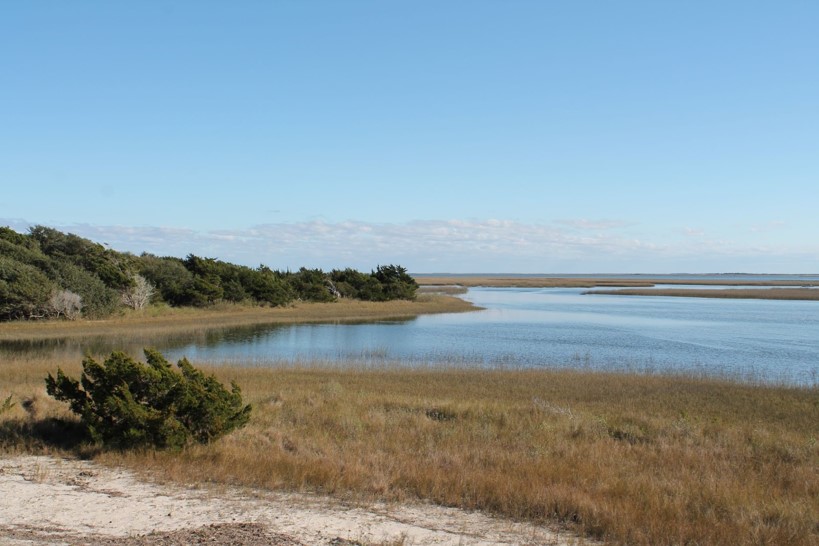
NOAA’s National Centers for Coastal Ocean Science (NCCOS), in collaboration with Warren Pinnacle Consulting, Inc., has successfully converted the popular Sea Level Affecting Marshes Model (SLAMM) to Python, a widely-used and versatile programming language. This open-source model, now called pySLAMM, marks a significant step forward in marsh modeling utility, promoting model advancements and broadening the accessibility of marsh predictions to the scientific and coastal management community.
Scientists use SLAMM to predict changes in coastal wetlands, including marsh resilience and migration, under projected future sea level rise scenarios. SLAMM has been a cornerstone in marsh modeling efforts across the U.S., with development and application funding provided from a diverse group of clients, including NOAA, the U.S. Environmental Protection Agency, U.S. Fish and Wildlife Service, U.S. Geological Survey, National Wildlife Federation, The Nature Conservancy, the Gulf of Mexico Alliance, and the University of Florida.
By transitioning to Python, pySLAMM offers numerous advantages, including the enhanced ability to operate in conjunction with other Python-based tools and frameworks commonly used in the scientific and environmental research community, ensuring the model’s long-term viability and support. The reprogramming process preserves the model’s functionality and reliability while fostering collaboration and contributions from researchers, scientists, and developers. Python’s extensive libraries and modules empower pySLAMM to manage large and complex modeling tasks, enhancing SLAMM’s scalability and enabling more comprehensive analyses and simulations. Furthermore, pySLAMM leverages Python’s strong presence in the GIS community, facilitating model integration with new geospatial tools. This advancement underscores NCCOS’ commitment to improving coastal resilience through innovative, user-friendly tools, simultaneously enhancing the extent of SLAMM’s functionality and benefiting national marsh modeling efforts including the Coastal Ecosystem Prediction System.
Access the pySLAMM code and user guide on GitHub.
